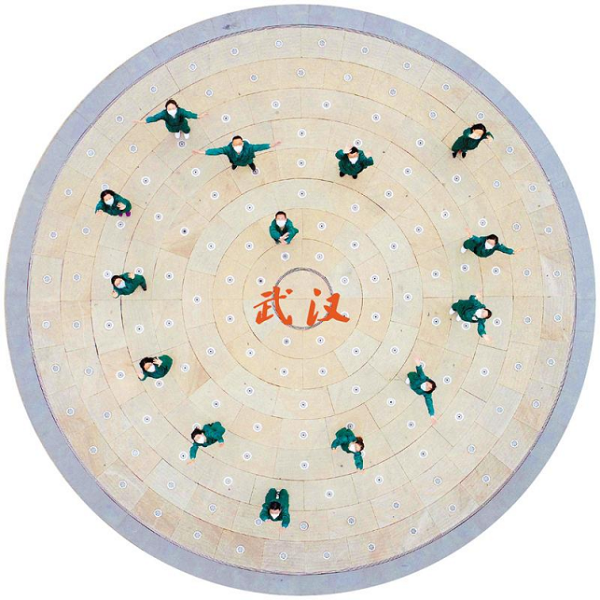Local media and young patients maintained close contact with Wu. Wu maintained close contact with local media and young patients. His stories were printed on the front pages of newspapers and in short videos on Douyin, the Chinese version of TikTok, where they served as a source of inspiration for many.
Back on Jan 25, inspired by Zhong Nanshan, a renowned respiratory scientist who made major contributions to the fight against the virus despite being 84 years old, Wu wrote a short piece acknowledging all medical personnel who left home for the frontlines during the spring festival.
"You gave up the chance to reunite with your loved ones; You stayed strong when confused; You stood firm when shaken…you are kind and steadfast; You are sure to see the light of victory," translated from the Chinese poem of Wu.
On the morning of March 16, Wu wrote a fifth piece of poetry to pay tribute to all the patients in their district that had recovered. At that time, there were no more existing cases. "Day and night, we remain fearless in fighting COVID-19 and are eager for a resounding victory," Wu wrote.

Photo taken on March 16 shows Wu's team standing in the shape of a heart to celebrate. [Photo/people.cn]
"The poems I wrote mark the key moments in our fight in Wuhan and symbolize my determination to overcome all obstacles," said Wu. "I am a warrior on a battlefield, a doctor who saves lives, a Party member who remembers his duty always, and a leader who meets challenges head on."
At a lecture in Wuxi on April 29, Wu looked back on his memorable 53 days and told attendees that, though the epidemic is still spreading around the world, final victory will come as long as people unite and follow government's prevention and control measures.